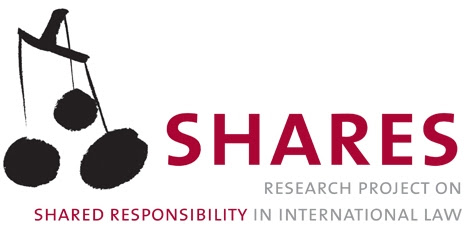Posted by: Jacobs Dov
Discrimination against homosexuals and lack of recognition of LGBT rights in Africa has been a pressing concern for a number of human rights organizations in recent years. The situation in Uganda has received particular attention, following the passage of anti-gay legislation in 2009 and the practice of some local newspapers to “out” certain homosexuals, accompanied by calls for their execution. While this is an obvious human rights issue, some recent initiatives are bringing the question in the realm of international criminal law, which bring to the fore interesting questions in relation to shared responsibility.
SMUG v. Lively and the use of the Alien Tort Statute
The first development to be mentioned is a claim brought under the Alien Tort Statute (ATS). In SMUG v. Lively, an LGBTI organization in Uganda brought a claim against Scott Lively, a American anti-gay activist, author of the far from tastefully named book The Pink Swastika and a strong supporter of anti-gay legislation in Africa. The basic claim of the plaintiff is that Lively, through his support for violent and repressive actions against gays, is aiding and abetting crimes against humanity committed in Uganda. The case is set to go to trial, following the decision of the District Court to deny Lively’s motion to dismiss in August 2013. Basically, the judge considered that 1) the discrimination against gays in Uganda might constitute persecution as a crime against humanity and 2) if established, the fact that Lively influenced and advised Ugandan anti-gay activists could constitute aiding and abetting of such crimes. While the reasoning of the judge is shaky in a number of ways, this approach to such human rights violations is interesting.
It is difficult to evaluate the exact impact that this case might have if successful, because it would depend on where the judge at trial would set the threshold for aiding and abetting. However, should mere intellectual support by a random citizen in another country be deemed as aiding and abetting crimes against humanity, this could have far-reaching consequences in creating a responsibility not to support those who commit such crimes elsewhere.
The ICC as a possible avenue?
The second development is the “complaint” that the Prosecutor of the International Criminal Court (ICC) apparently received earlier this year calling on the arrest of three anti-gay activists for promoting crimes against humanity. It is not entirely clear what the legal status of this “complaint” is and it seems to be under consideration. Earlier this month a petition was launched in order to put the Prosecutor under pressure to act. This initiative has, in my view, near to no chance of success, given the current workload at the ICC and because a petition signed by 200 people online is hardly going to put any kind of “pressure” on Fatou Bensouda to do anything.
However, it is nonetheless interesting because the proposition that state-sponsored discrimination of gays could amount to crimes against humanity is certainly plausible. One could discuss whether the threshold for finding crimes against humanity has not been lowered too much in recent years at the ICC (notably in the Kenya situation), but the result is that the ICC could easily be shifting its attention from international crimes to more broadly defined gross human rights violations, and could be a possible tool in order to hold state leaders in check for the type of conduct that is currently taking place in Uganda.
The implications for shared responsibility
I think these developments, when seen together, are illustrative of the development of shared responsibility in international law, at least on two levels.
First, it is indicative of the development of a shared accountability, as mentioned in the SHARES Conceptual Framework, whereby several entities might be brought before various jurisdictions in order to cover various dimensions of an event. The various ways in which the Srebrenica massacre has been dealt with (before the International Court of Justice, the International Criminal Tribunal for the former Yugoslavia and domestic courts against individuals, states and the United Nations) is a perfect example of that.
Second, it is indicative of a possible shared responsibility in dealing which such conduct, that relies on a framework of judicial bodies, both national and international and a web of legal regimes, such as human rights and international criminal law. This institutional and normative interdependence is yet again at the heart of the need to define and refine a more elaborate understanding of shared responsibility in international law.
